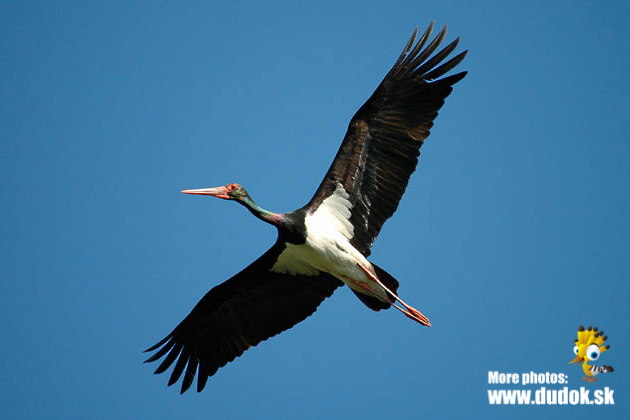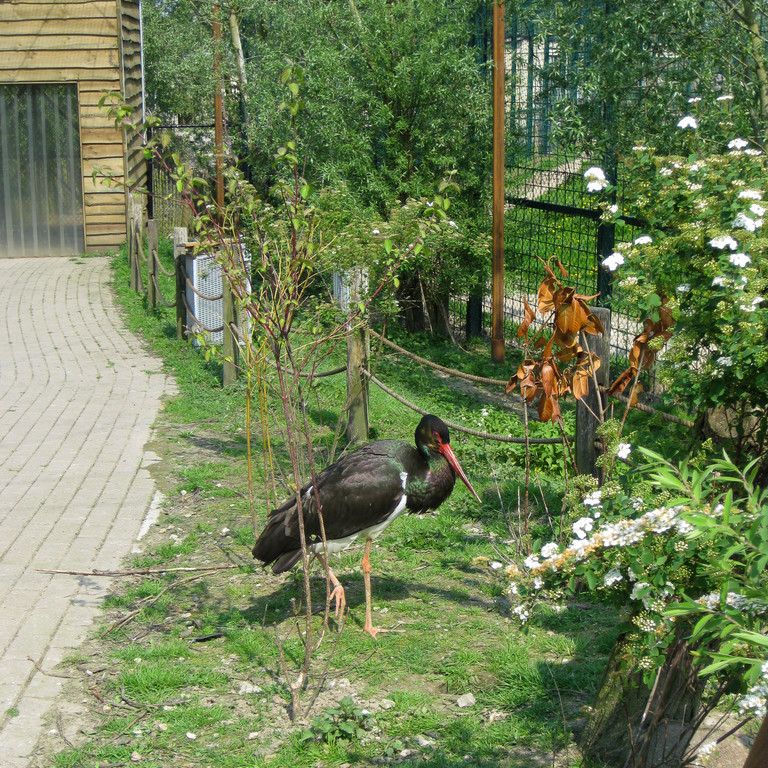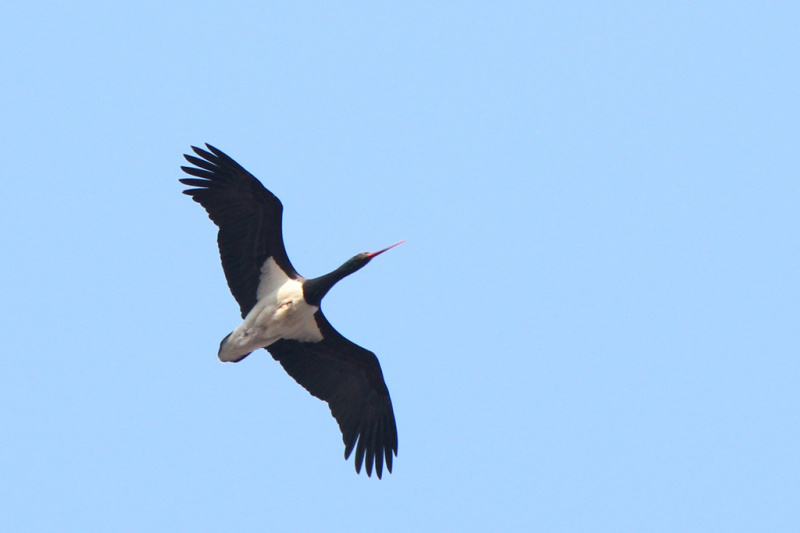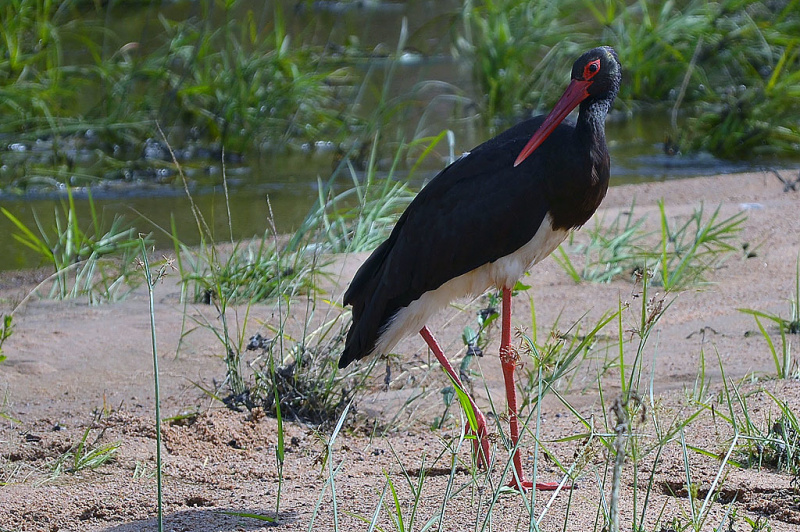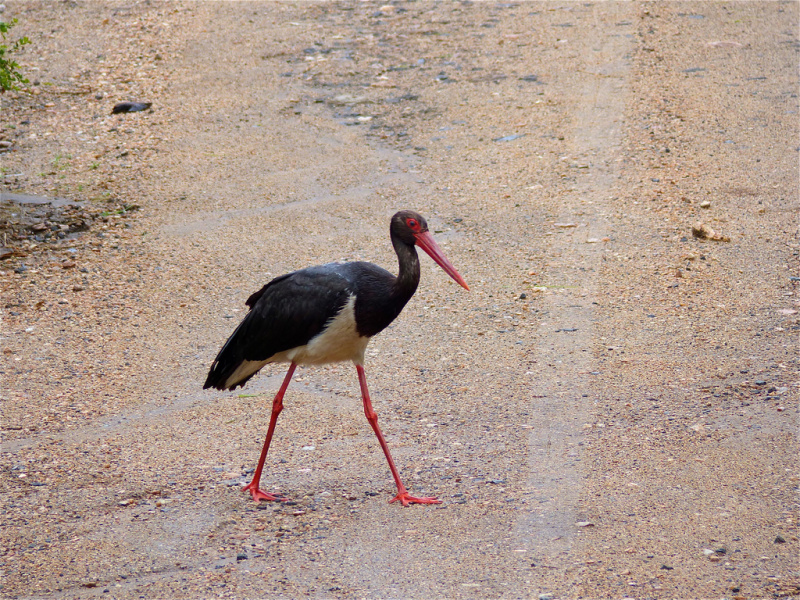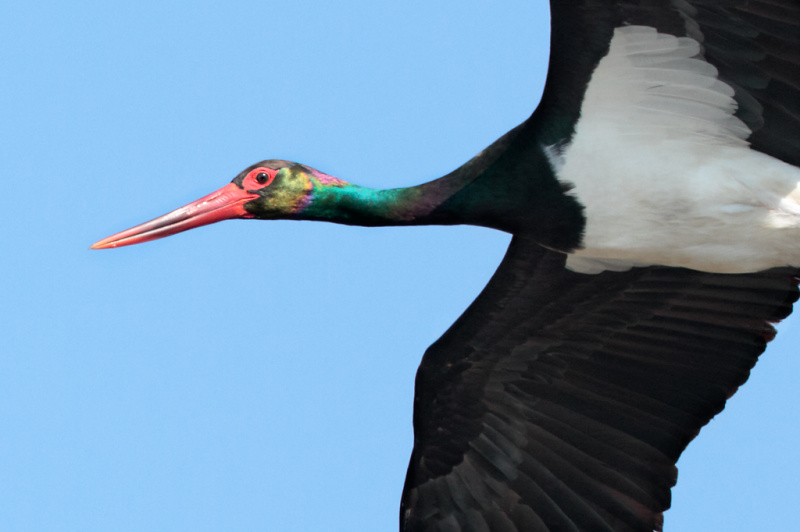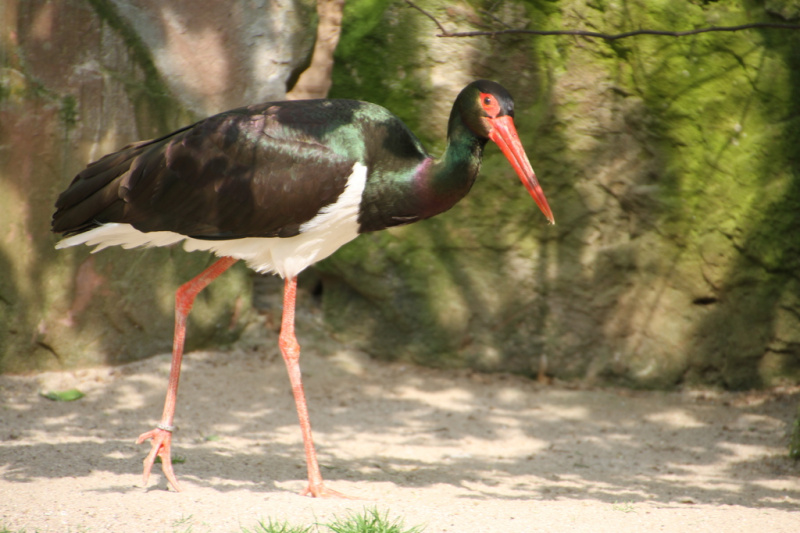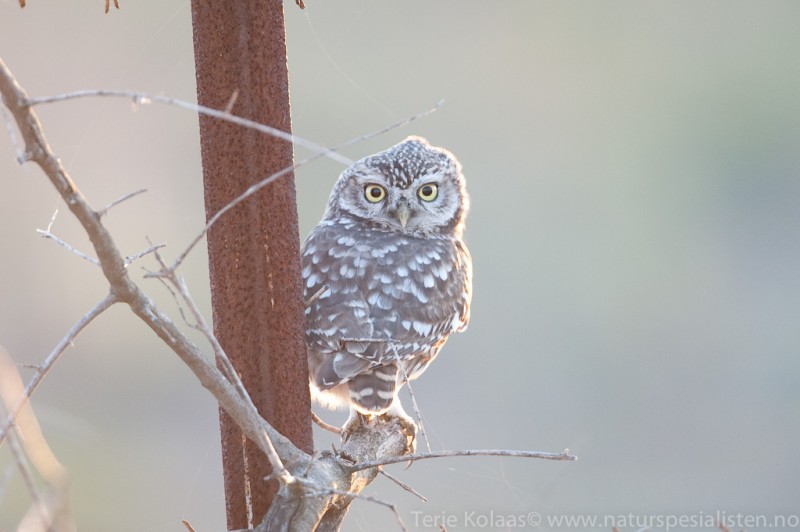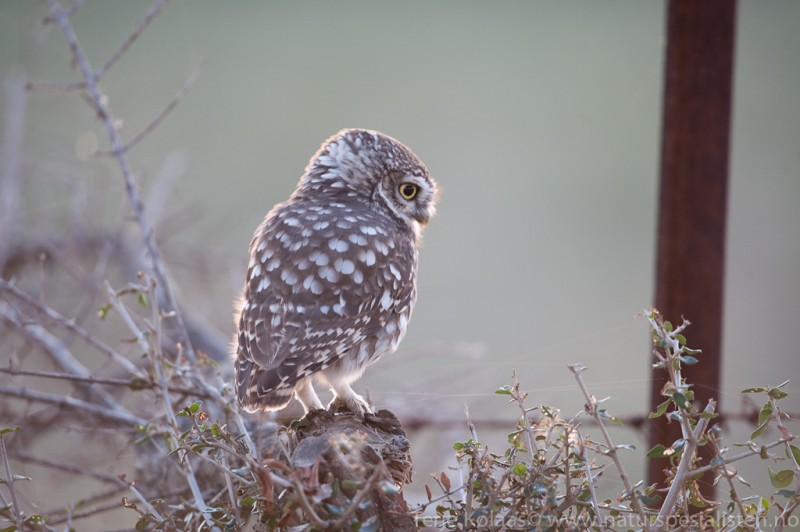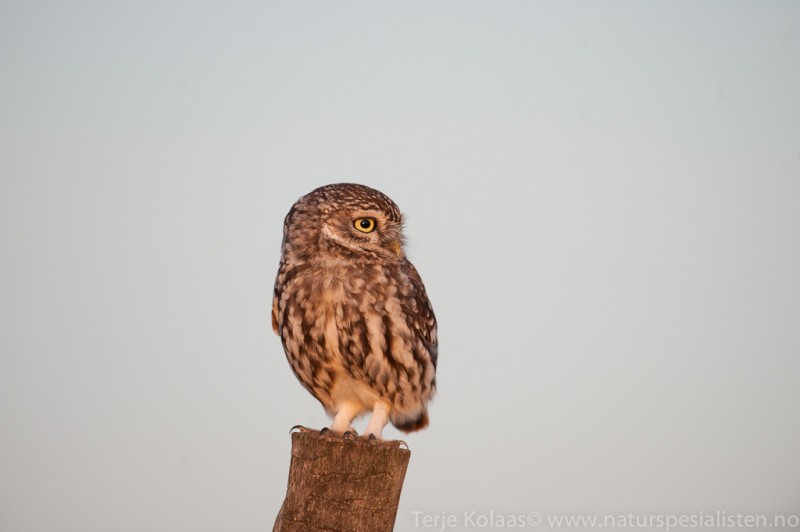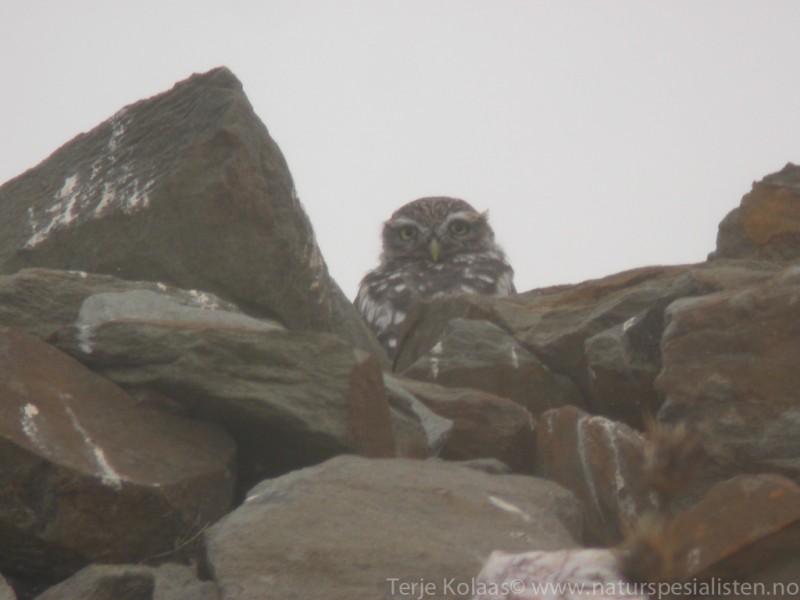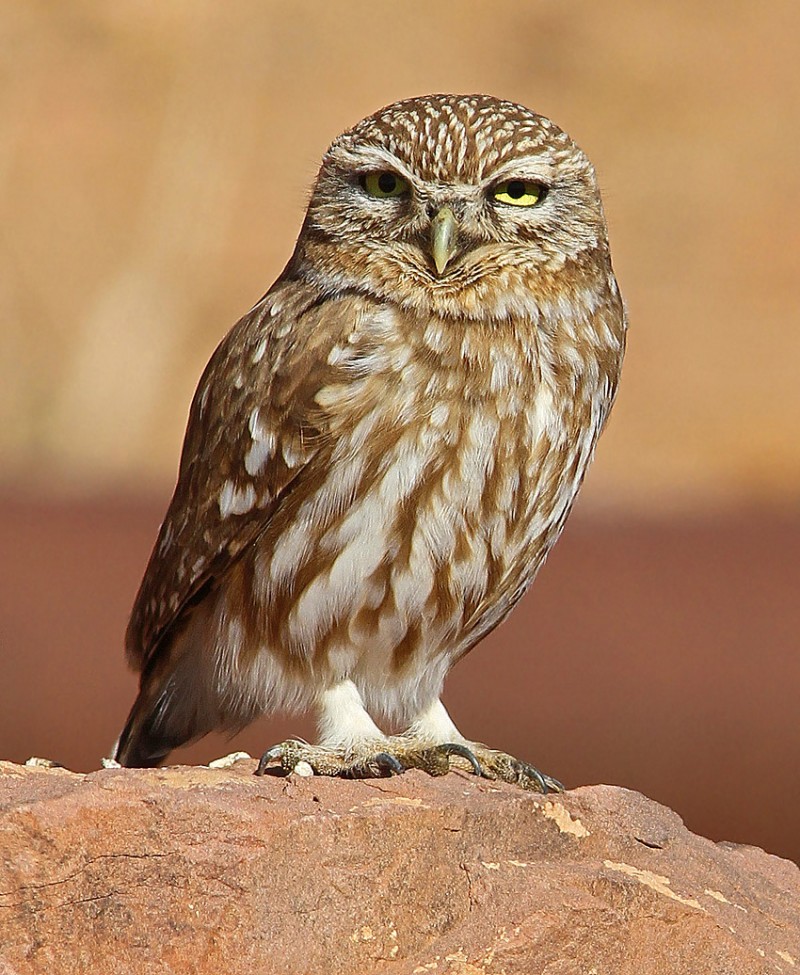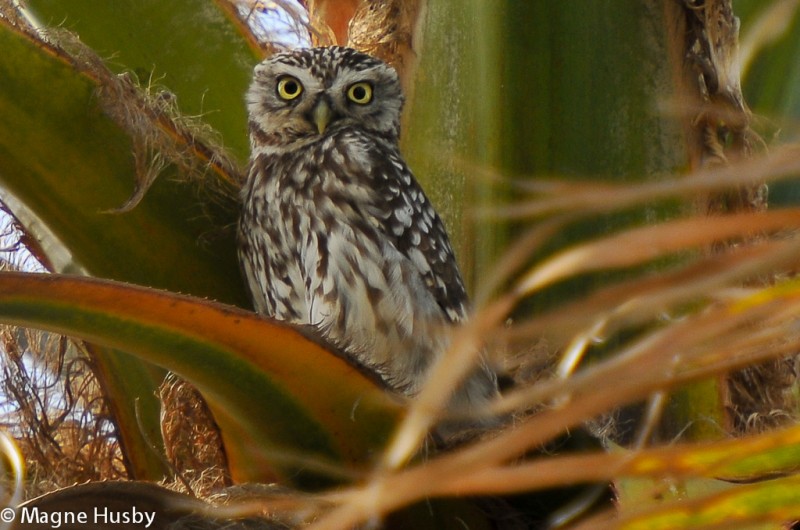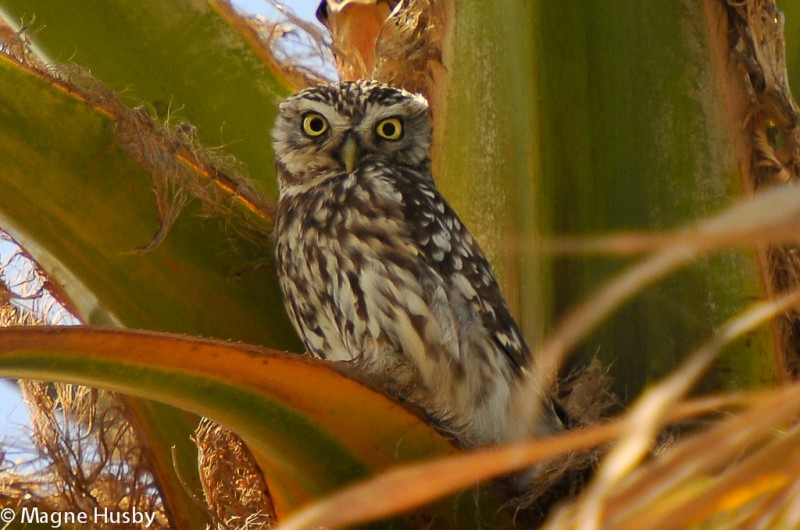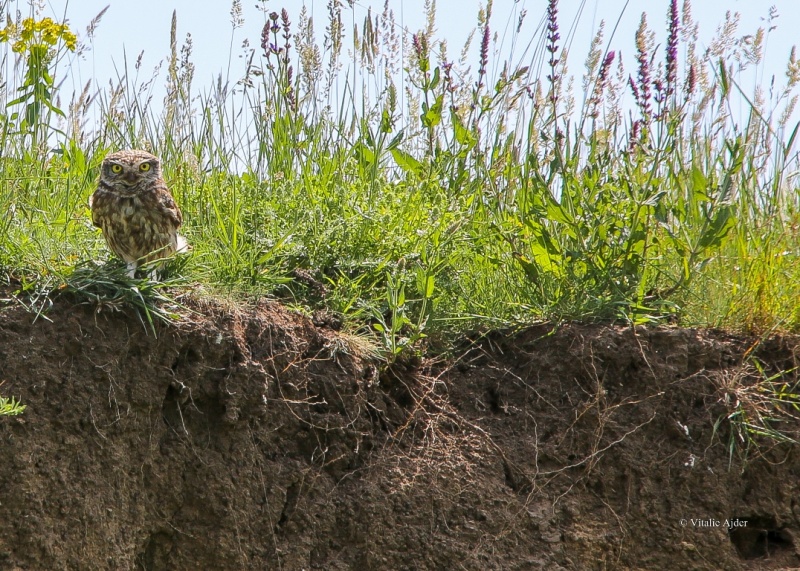Black Stork (Ciconia nigra)
Little Owl (Athene noctua)
Similar to White Stork (Ciconia ciconia), but with dark brown, metallic neck, head, breast and back. Only belly and innermost, under wing coverts are white. Legs, eye-ring and bill deep red. Flies with neck extended like White Stork, but contrasting white belly is visible at great distance. Immature birds duller brown than adults, with grey-green bill and legs.
Sound:Thin, disyllabic "ahhh-li" heard at nest and when courting. One syllable sounds like gasping intake of air, the other is a thin, piping sound. A bit like a cheap, manual, air-mattress pump. Bill-clattering used by juveniles in alarm.
Courting:
Distribution:
Wikipedia: map (se also Xeno-canto below)
Ecology:Birdlife ecology
Links:
Observation.org Latest observations
Image search Flickr NB! May give other species
CCA small, tubby and compact owl with long legs, yellow eyes and stern expression. Head without tufts or any sharp corners, proportionally smaller than in Tengmalm's Owl, and without large, white facial discs. Upperparts greyish brown to buff, with boldest white spots of any small owl in the region. Underparts whitish with heavy, brown streaking. Flight characteristic, with alternating wing flapping and closed wings. Runs, or even hops along the ground. Posture mostly erect, but hunched when in alarm.
Sound:Song a clear drawn "klooit" resembling Scops Owl, but with different intonation and longer single notes. Tone rises slowly in pitch throughout the call and ends with marked raised pitch, often with a change in timbre to a coarse shriek. Rich repertoire of social sounds: E.g. a clear "klewew", and sharp short "kek kek kek".
Song, contact call:
Distribution:
Wikipedia: map (se also Xeno-canto below)
Ecology:Birdlife ecology
Links:
Observation.org Latest observations
Image search Flickr NB! May give other species
CC
 English
English Albanian
Albanian
 Armenian
Armenian
 Bulgarian
Bulgarian
 Catalan
Catalan
 Croatian
Croatian
 Czech
Czech
 Danish
Danish
 Dutch
Dutch
 Finnish
Finnish
 French
French
 Georgian
Georgian
 German
German
 Greek
Greek
 Hungarian
Hungarian
 Italian
Italian
 Latvian
Latvian
 Lithuanian
Lithuanian
 Macedonian
Macedonian
 Norwegian
Norwegian
 Polish
Polish
 Portuguese
Portuguese
 Romanian
Romanian
 Russian
Russian
 Sami : Lule sami
Sami : Lule sami
 Sami : North sami
Sami : North sami
 Sami : South sami
Sami : South sami
 Scientific names
Scientific names
 Serbian
Serbian
 Spanish
Spanish
 Swedish
Swedish
 Ukrainian
Ukrainian


